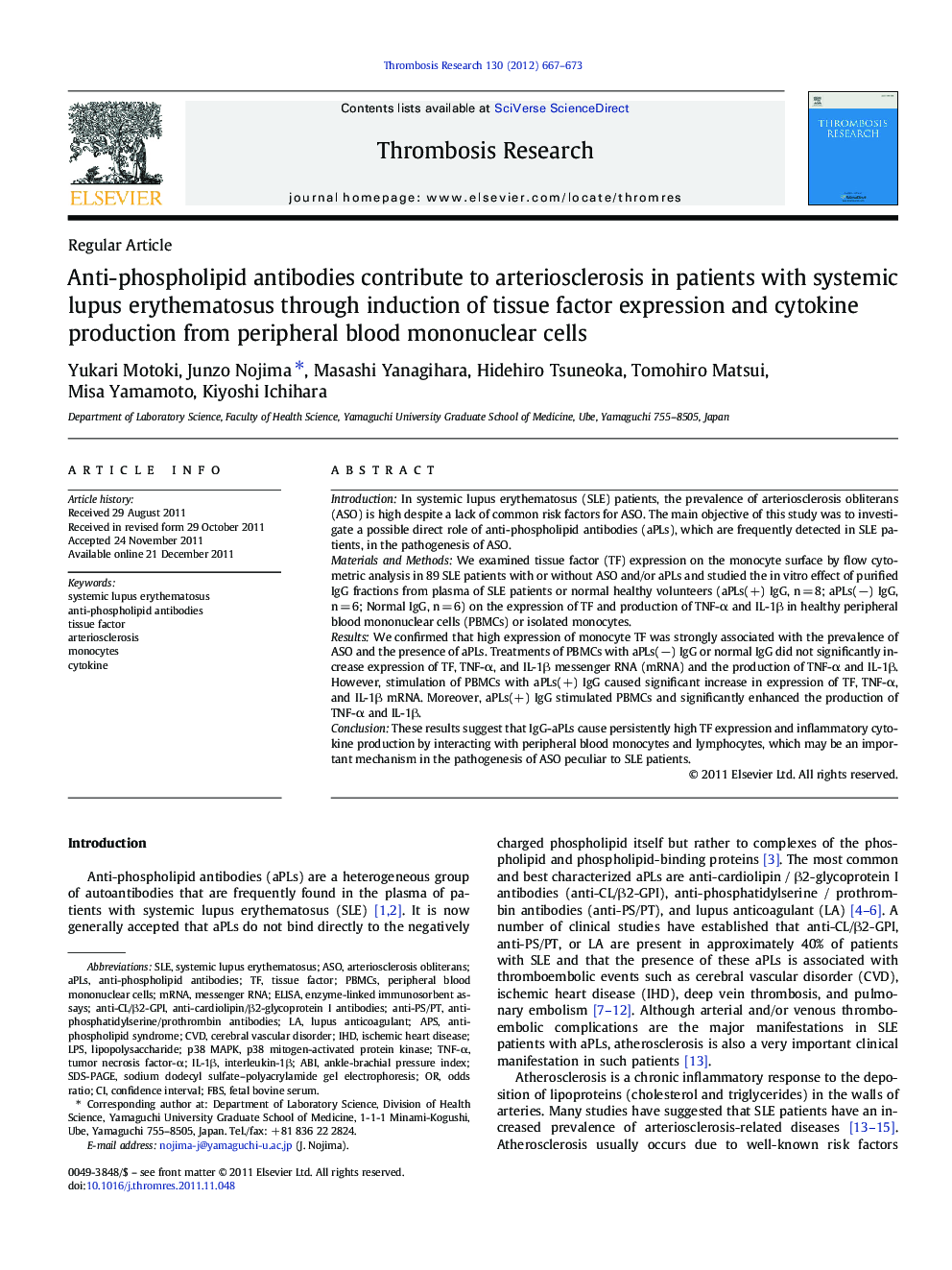| Article ID | Journal | Published Year | Pages | File Type |
|---|---|---|---|---|
| 3028207 | Thrombosis Research | 2012 | 7 Pages |
IntroductionIn systemic lupus erythematosus (SLE) patients, the prevalence of arteriosclerosis obliterans (ASO) is high despite a lack of common risk factors for ASO. The main objective of this study was to investigate a possible direct role of anti-phospholipid antibodies (aPLs), which are frequently detected in SLE patients, in the pathogenesis of ASO.Materials and MethodsWe examined tissue factor (TF) expression on the monocyte surface by flow cytometric analysis in 89 SLE patients with or without ASO and/or aPLs and studied the in vitro effect of purified IgG fractions from plasma of SLE patients or normal healthy volunteers (aPLs(+) IgG, n = 8; aPLs(−) IgG, n = 6; Normal IgG, n = 6) on the expression of TF and production of TNF-α and IL-1β in healthy peripheral blood mononuclear cells (PBMCs) or isolated monocytes.ResultsWe confirmed that high expression of monocyte TF was strongly associated with the prevalence of ASO and the presence of aPLs. Treatments of PBMCs with aPLs(−) IgG or normal IgG did not significantly increase expression of TF, TNF-α, and IL-1β messenger RNA (mRNA) and the production of TNF-α and IL-1β. However, stimulation of PBMCs with aPLs(+) IgG caused significant increase in expression of TF, TNF-α, and IL-1β mRNA. Moreover, aPLs(+) IgG stimulated PBMCs and significantly enhanced the production of TNF-α and IL-1β.ConclusionThese results suggest that IgG-aPLs cause persistently high TF expression and inflammatory cytokine production by interacting with peripheral blood monocytes and lymphocytes, which may be an important mechanism in the pathogenesis of ASO peculiar to SLE patients.
